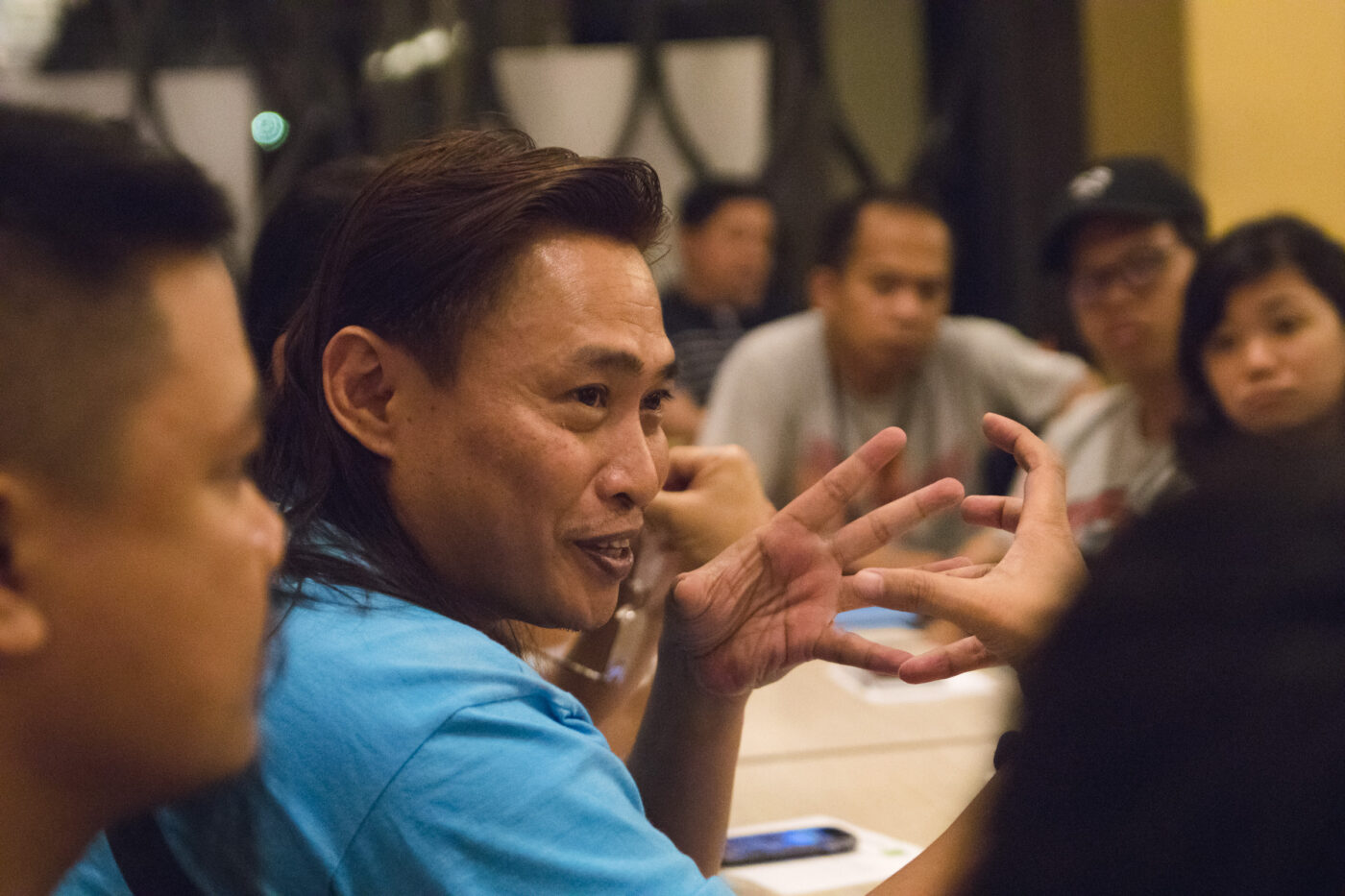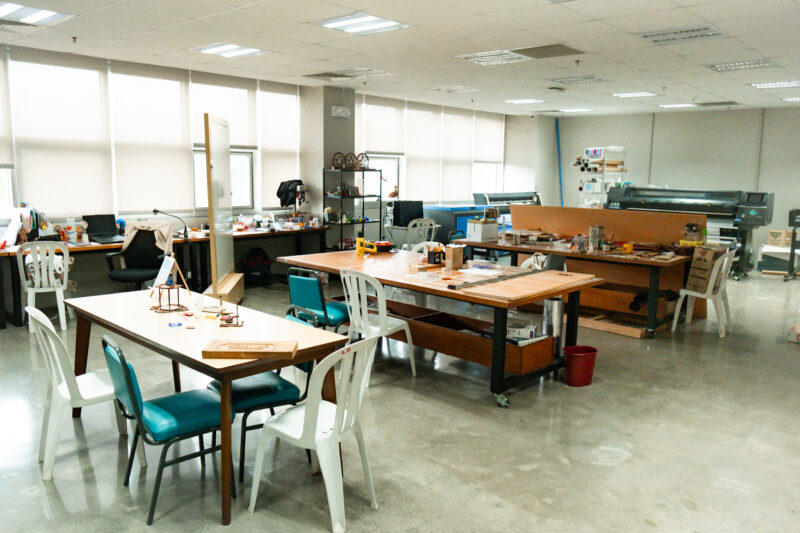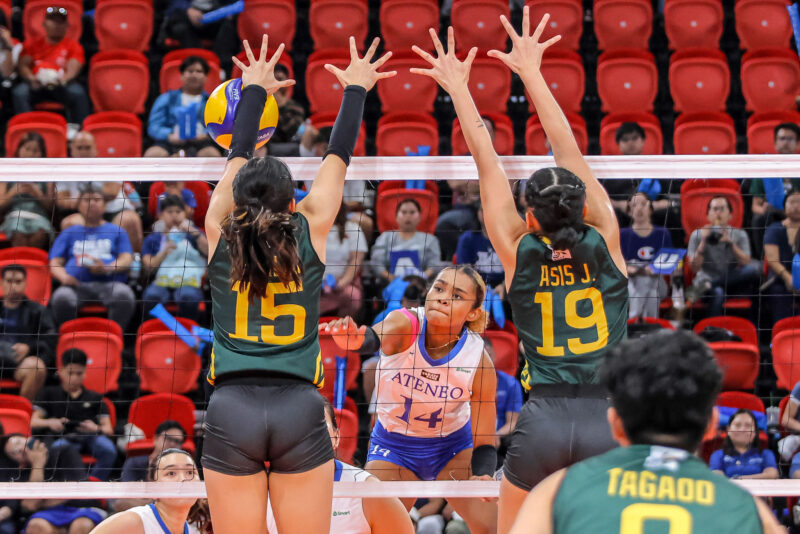THE COALITION of Ateneans for Indigenous People (CAIP) spearheaded the campaign to support House Bill 4220 or the IP Education Systems Act of 2014 by planning to hold an IP Week together with other organizations inside the Ateneo campus.
This came after the bill’s proponent Ifugao Rep. Teodoro Baguilat Jr. met with representatives from CAIP, Baybayin, Ateneo Assembly, Development Society of Ateneo (DevSoc), and the Union of Students for the Advancement of Democracy (USAD) last August 26. “We talked about activities that we could do to give recognition to the IPs and to celebrate their diversity in campus. Also, it’s our first ever IP Week so we’re looking forward to that,” said CAIP Head Dane Ancheta.
Ancheta also said that they gave their comments and suggestions on how to further improve the bill and are planning to release infographics to gain more support for both the advocacy and the bill from the general public. Aside from that, they are also willing to lobby for said bill in Congress or in the Senate if needed.
Sanggunian Deputy for Advocacy Management Karin Bangsoy said she is happy that more and more advocacy groups of the Ateneo are engaging in the political issues of the country. “Engaging decision makers and policy makers are really a big part in pushing for an advocacy in the real world so we want to help the student orgs do that and hopefully connect them to congressmen and senators in the future,” she added.
“Schools run by IPs for the IPs”
The IP Education Systems Act of 2014 is an act recognizing and institutionalizing the IP educational systems within the existing Philippine Educational Systems. “It aims to promote and develop IP cultures, traditions and institutions,” said DevSoc President Alex Fontanilla.
As part of an indigenous group, she believes this bill can address the disconnect between what IPs learn in school and what they actually experience in their everyday lives. “They’re part of this community and eto iyong context nila, but they are studying a formal education system that doesn’t recognize their diversity,” she said.
According to her, Baguilat is also pushing to train IP educators to become superintendents of the Department of Education (DepEd) so they could continue to monitor the bill after it is passed. With regards to this, Ancheta hopes to stop certain issues faced by Lumad schools last year such as the closing down of IP schools that do not fit the standards and other bureaucratic processes imposed by the DepEd.
As the 17th Congress begins session, Baguilat plans to file a revised bill this September with more inputs from organizations who work with the IP sector and from the IPs themselves.
IP Week
According to Bangsoy, Baguilat wanted student volunteers to push for the bill on the ground as he pushes for it in Congress. He believes that raising the level of people’s awareness of the IP advocacy and gaining their support is crucial to the passing of the bill.
In response to this, CAIP, DevSoc, USAD, Baybayin, Loyola Mountaineers, Barefoot Philippines, and Ateneans for Agrarian Reform Movement will hold an IP Week inside Ateneo on October 17-22, just in time for the National Indigenous Peoples’ Month.
“We will conduct Kapihan Sessions (forums), IP Advocacy Workshops, an IP Advocacy Fair, film showing and a museum tour sa Museum of the Filipino People,” said Fontanilla. Aside from students, they also plan to partner with IP rights advocate Albert Alejo, SJ, Michael Liberatore from the Theology Department, and Baguilat himself who they plan to invite as guest speaker.
IP Week aims to situate the indigenous people into the national socio-political context and at the same time, highlight the richness of their culture. “We want the Ateneo community to be more familiar with what is happening to our IP brothers and sisters, we want them to know that there is something deeper in their culture and tradition, that there is much more to learn, to be understood, and so much more for us to love,” said Baybayin President Marc Vanguardia.
Fontanilla believes this can be done by starting with Ateneans whom we know are IPs because they could be “the window through which we engage with the IP advocacy”.
“Kasama natin silang uunlad”
Staying true to the bill’s objective of highlighting the diversity of IPs, there are also plans to have an IP Pride Campaign for Ateneans who are members of indigenous groups. “Kasi I think ang daming students dito na from Mindanao, from Visayas, they’re part of IP groups, pero walang institutionalized way to identify them,” said Fontanilla. She hopes to encourage IPs to not just recognize their roots, but celebrate it as well.
According to Ateneo Assembly Vice President for Financial Logistics Yna Lim, many IPs have become ashamed of their identity. “ Napag-iiwanan ang kultura nila, ang practice nila… mas pinipili nilang makibagay. Dahil dito, nawawala ang identity nila bilang indigenous people (They’re leaving behind their cultures and practices for conformity. Because of this, they are losing their identities as indigenous people.),” she said.
Fontanilla believes that being an IP is “not something you should hide because in identifying with it, it’s also attached to your being Filipino.”
“We want everyone to understand that the Filipino culture is not a singular homogenous culture. Sometimes we highlight our differences too much that we only see Bisaya, Muslim, and not our brothers and sisters who are also Filipino,” Vanguardia said.
IP Week will be held in celebration of the culture and traditions of the indigenous people. However, according to Lim and Vanguardia, it is also a solemn event in support of our fellow Filipinos.
“We want people to feel the pain and the struggle of our brother and sisters, to open our eyes to what is happening and to feel the need to make action,” said Vanguardia.
“It’s about time na may gawin tayo for the indigenous people, and it begins with this,” Lim added.
“Ang kulturang Filipino, binubuo ng iba’t ibang klaseng hibla na iba iba din ang kulay, kung kaya’t lalo siyang tumitingkad at lalong gumaganda, dahil sa mga pagkakaiba na nito, kailangan lang nating mahanap kung paano natin siya ipagsasama-sama sa iisang tela (Filipino culture is made up of a variety of threads in different colors and it is through this diversity that it becomes brighter and more beautiful. We just need to find how we can weave them into a single piece of cloth),” said Vanguardia.







